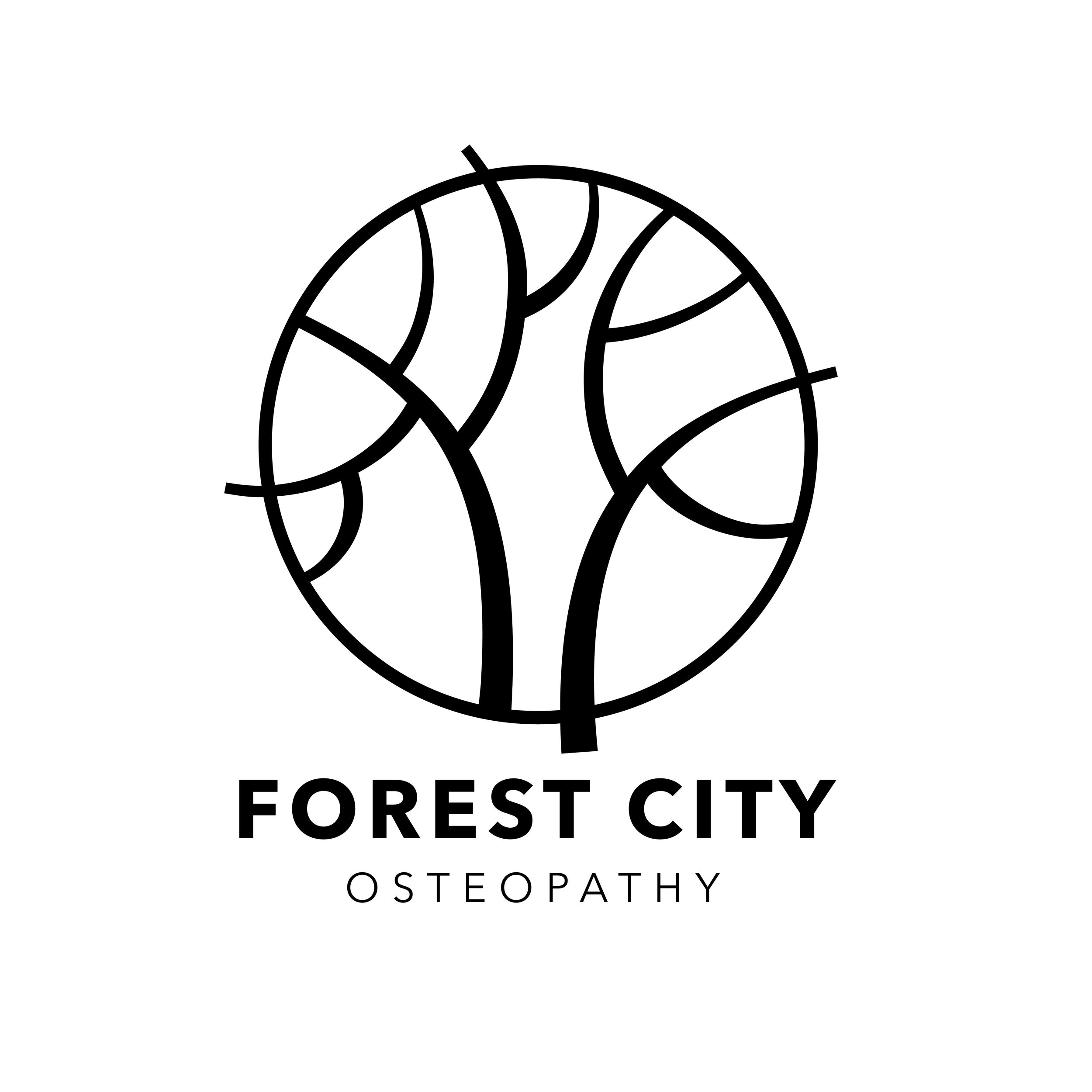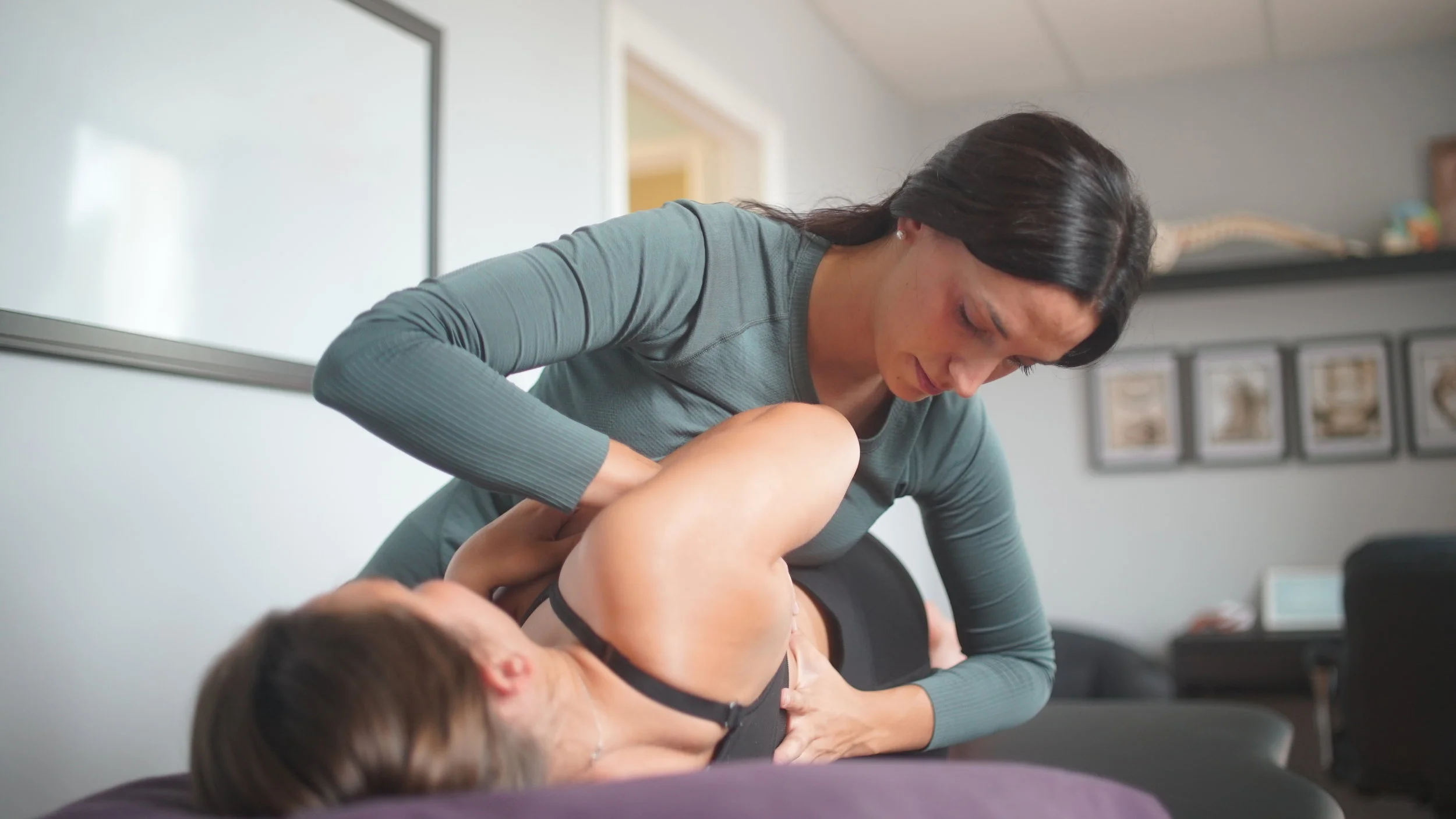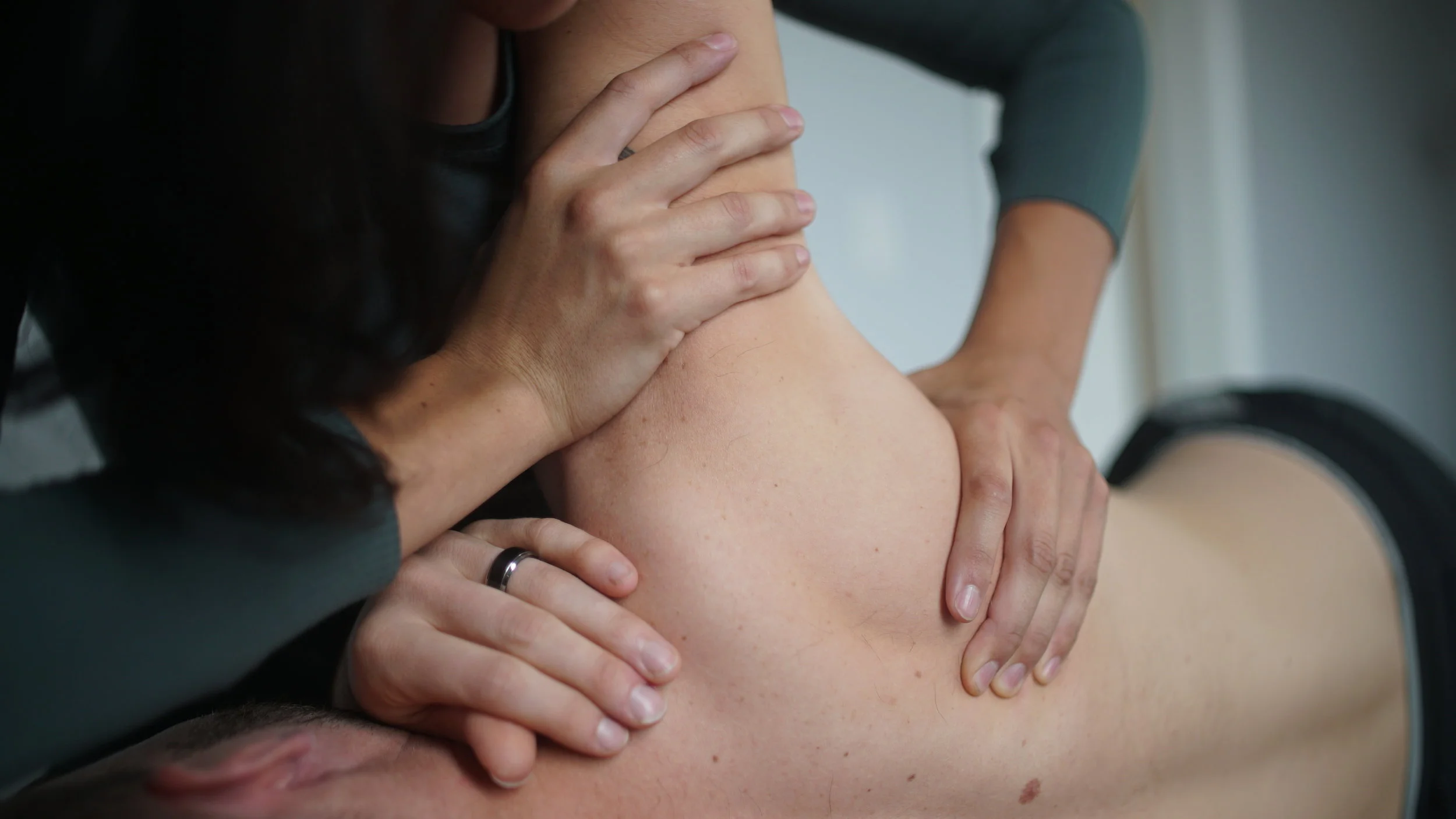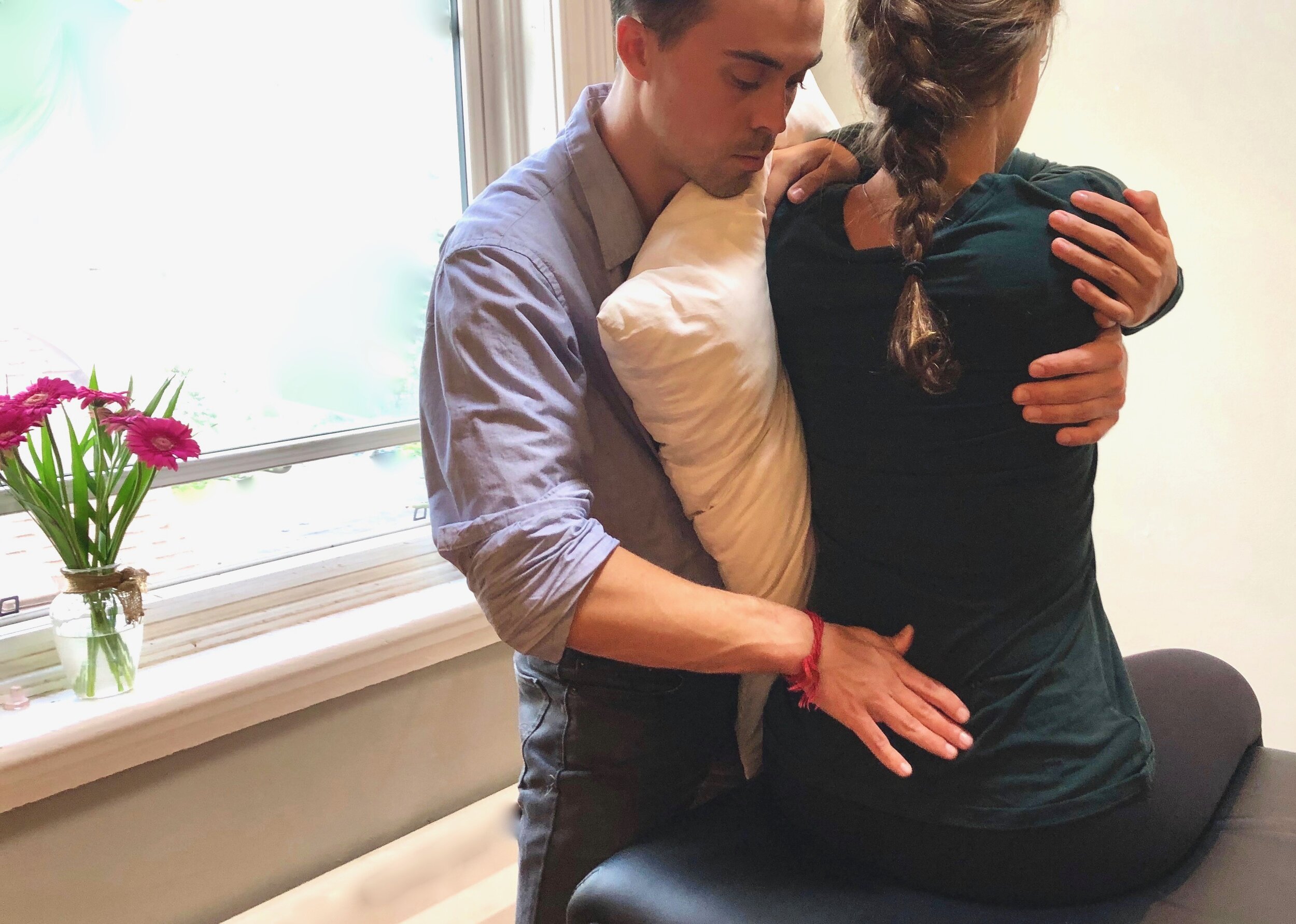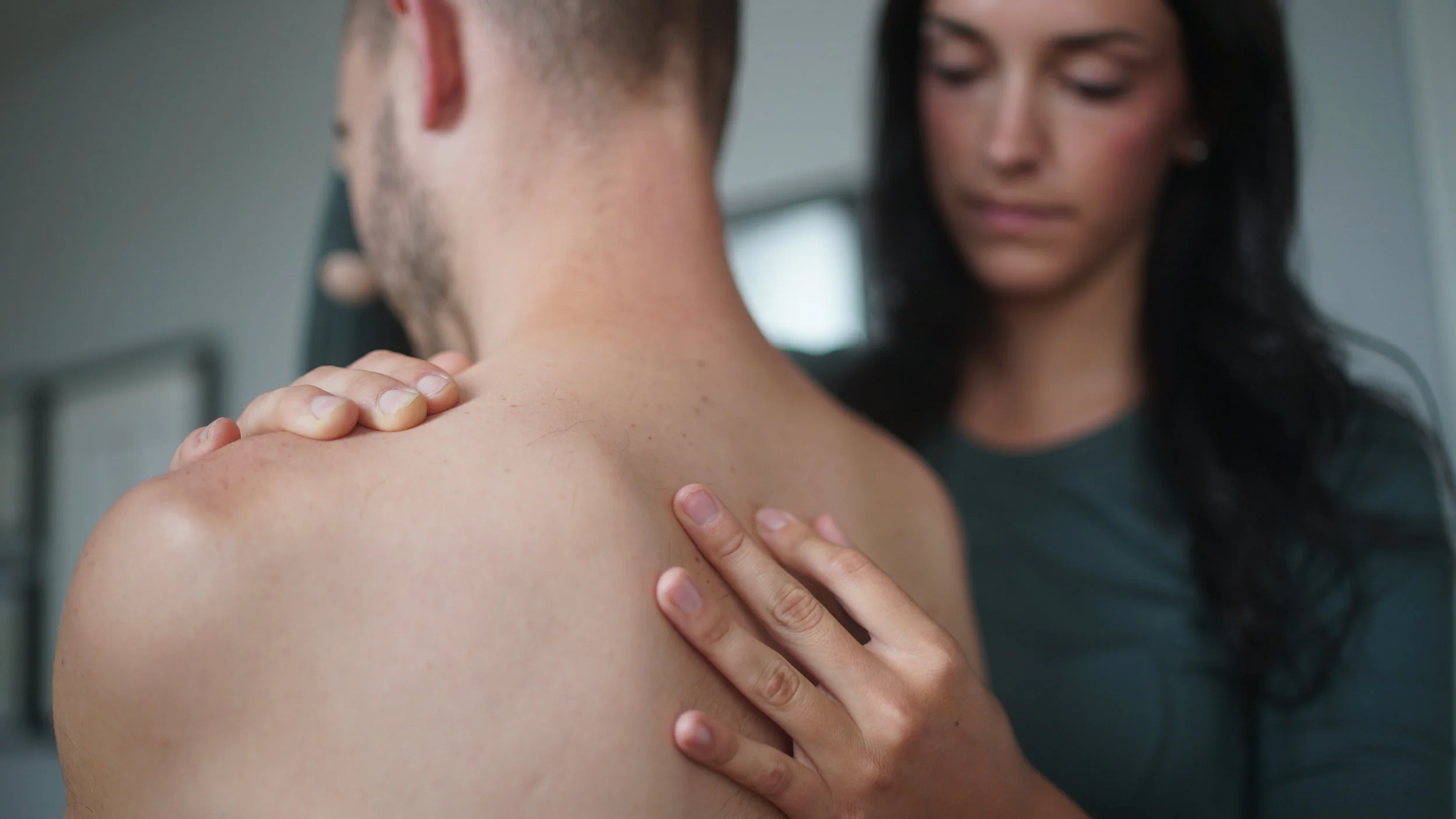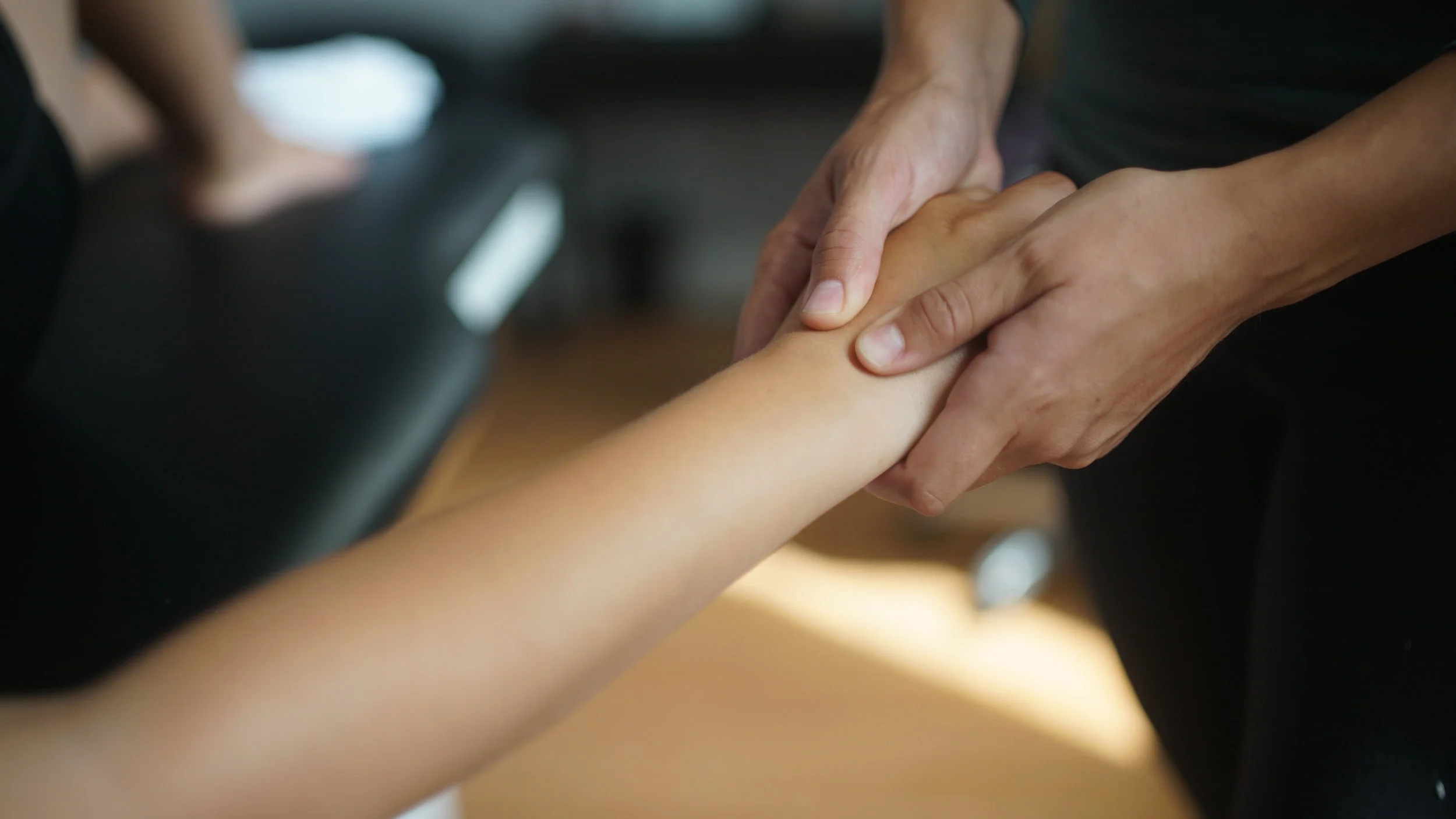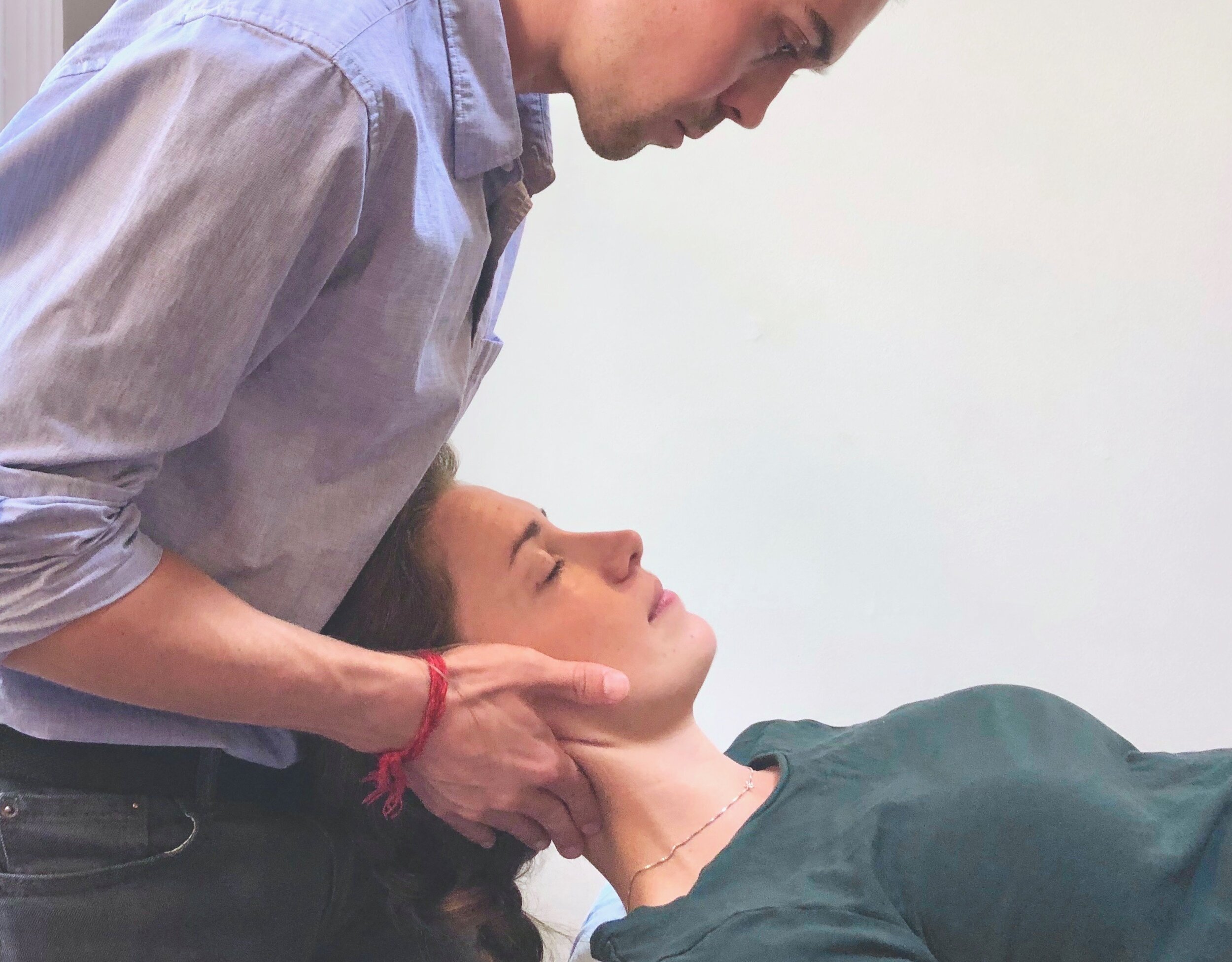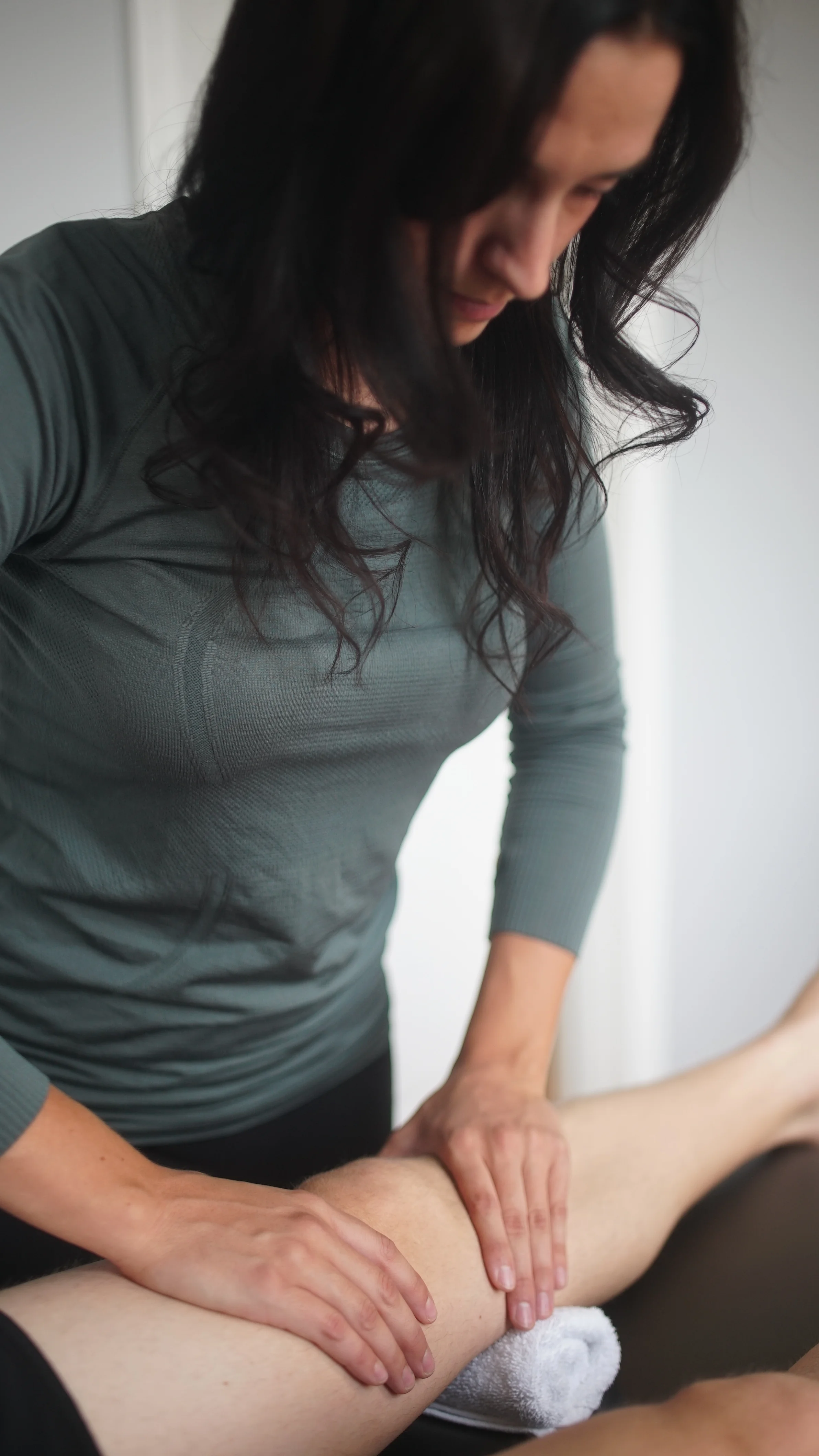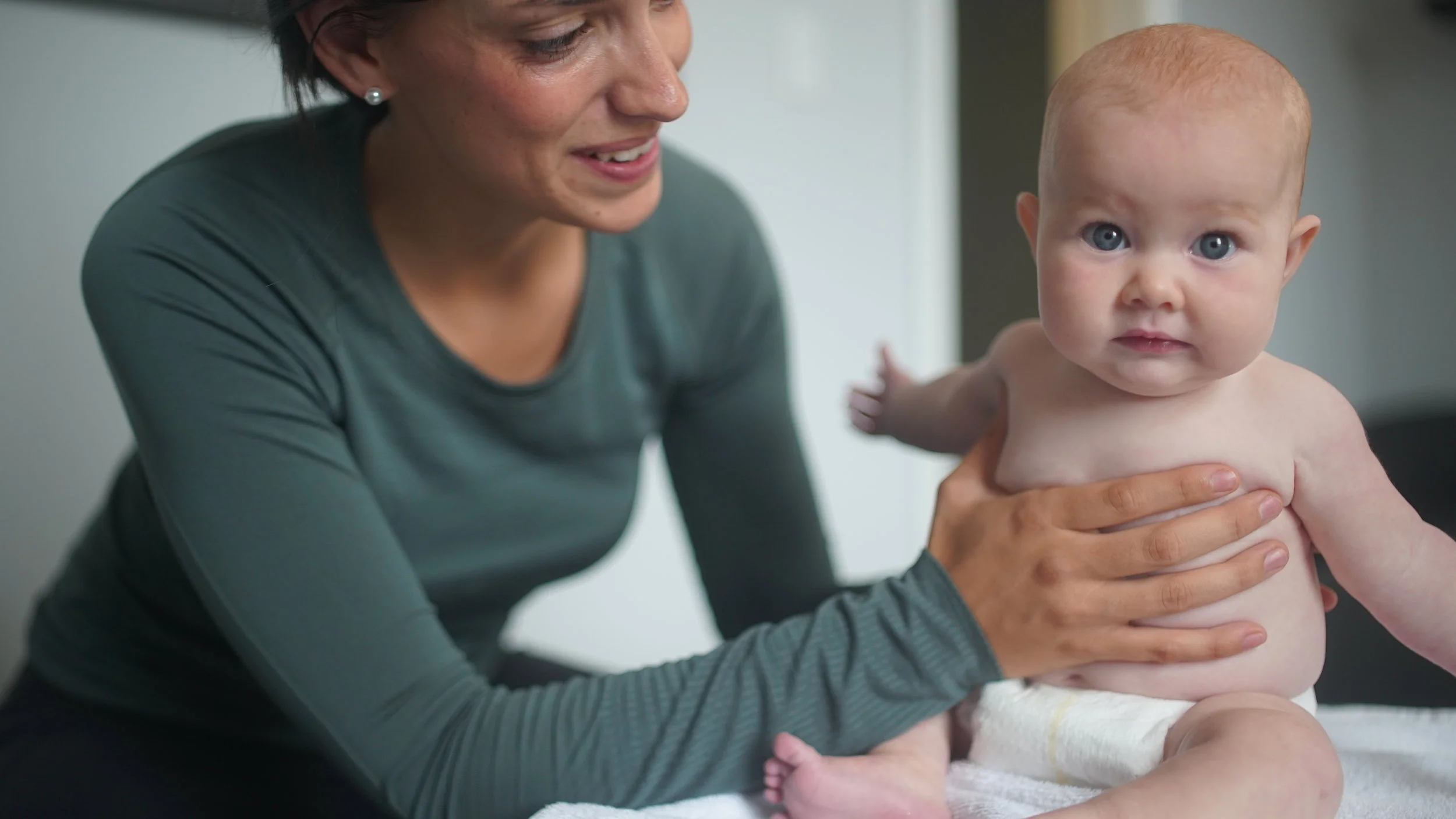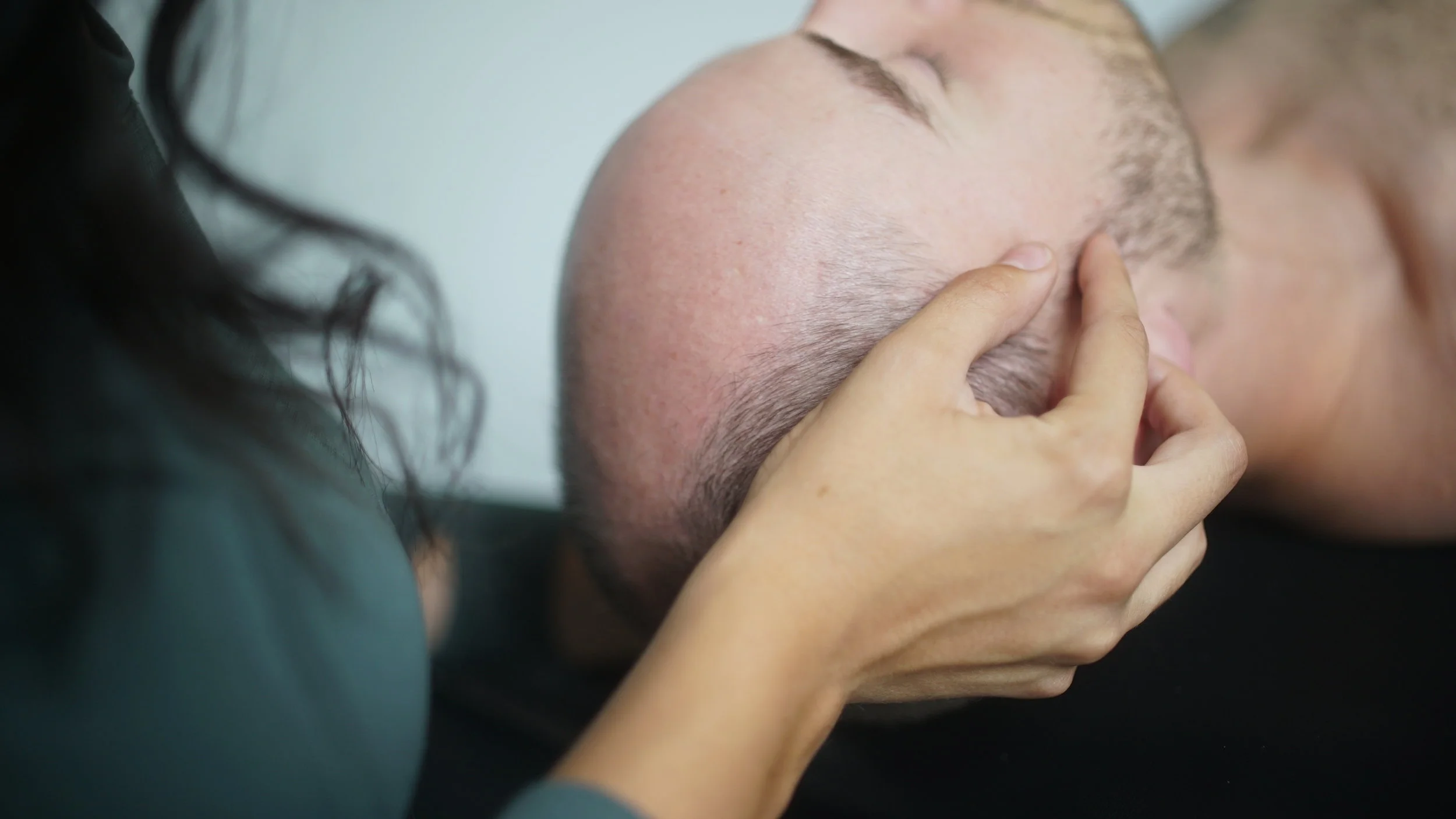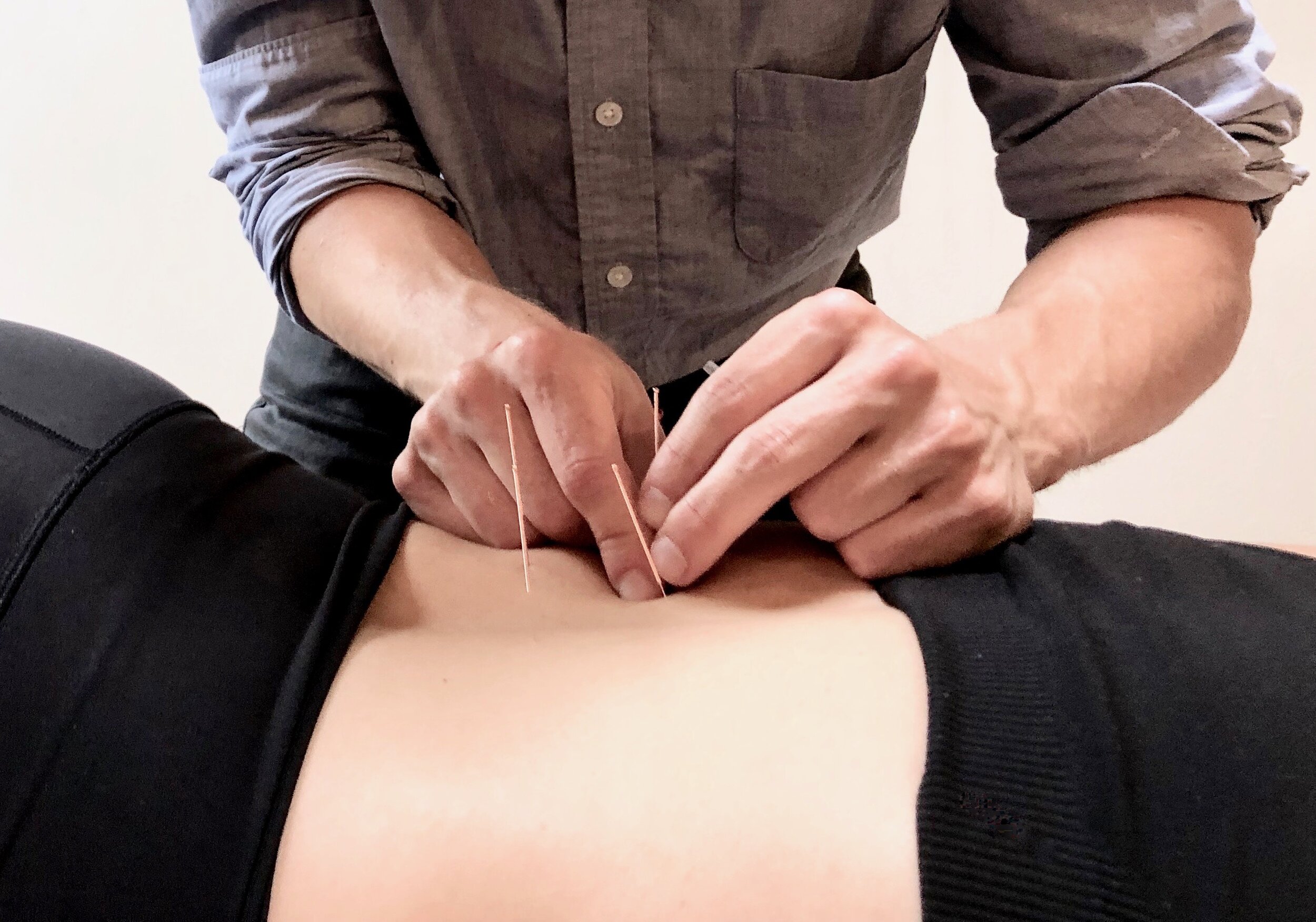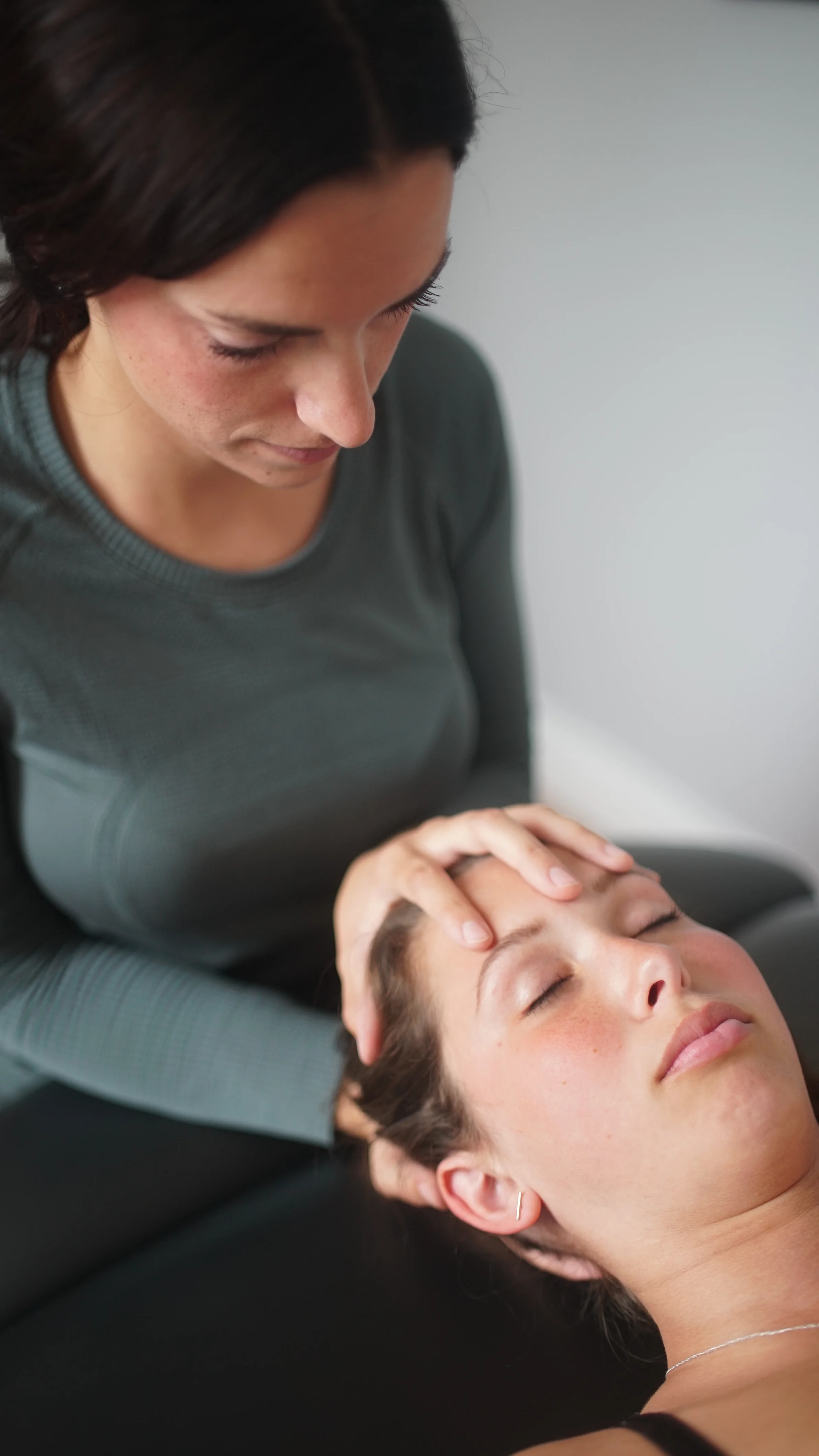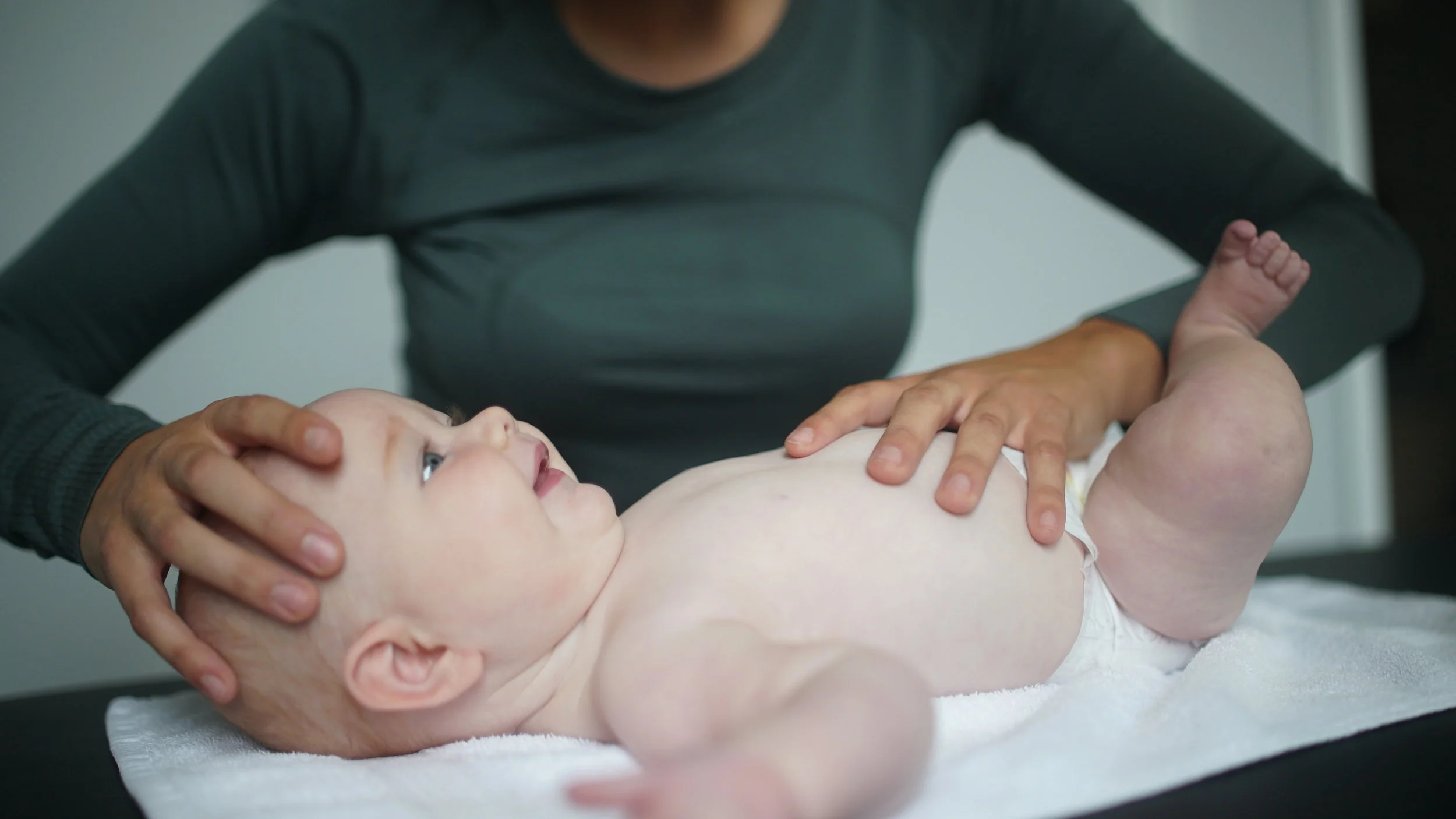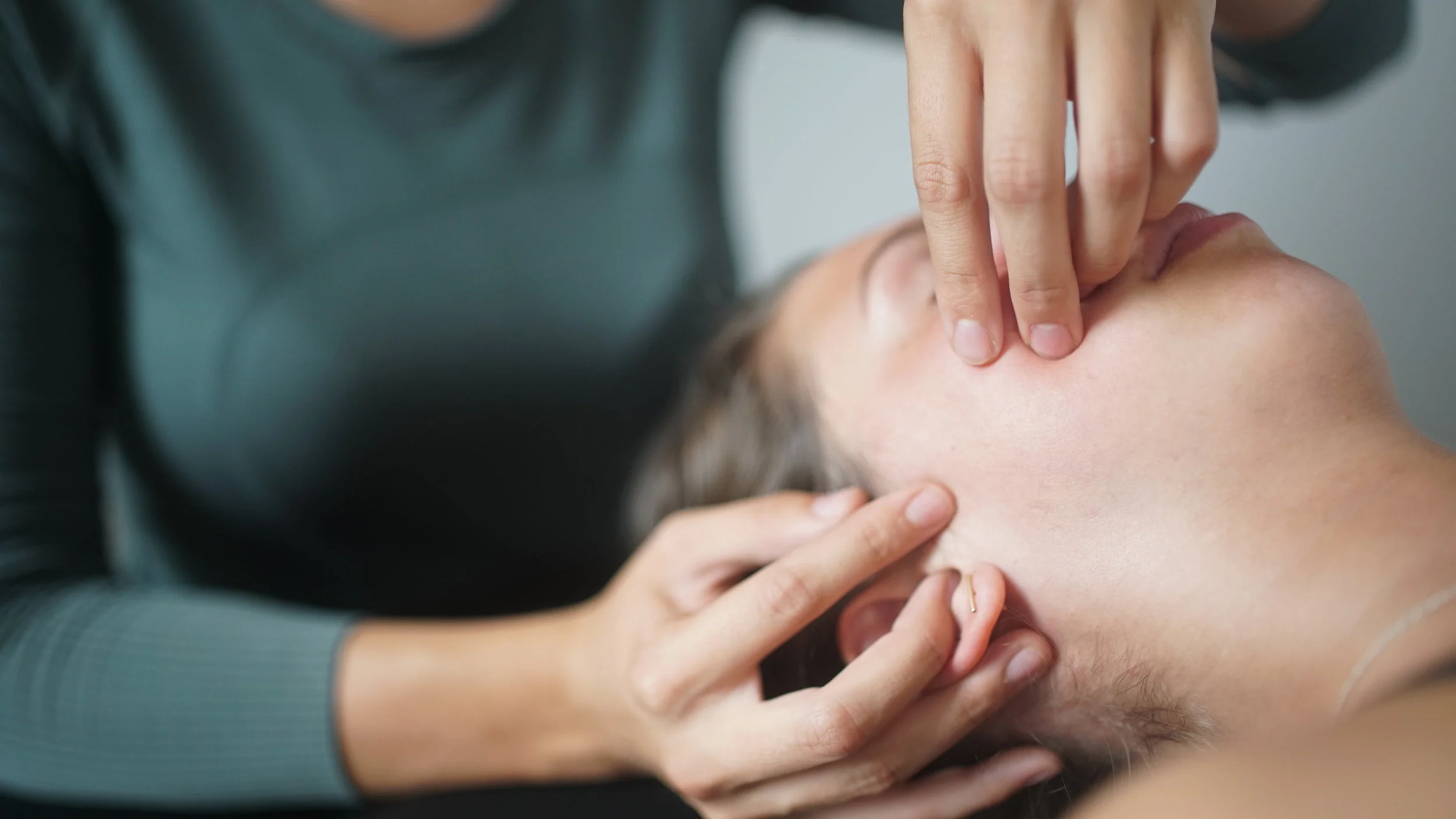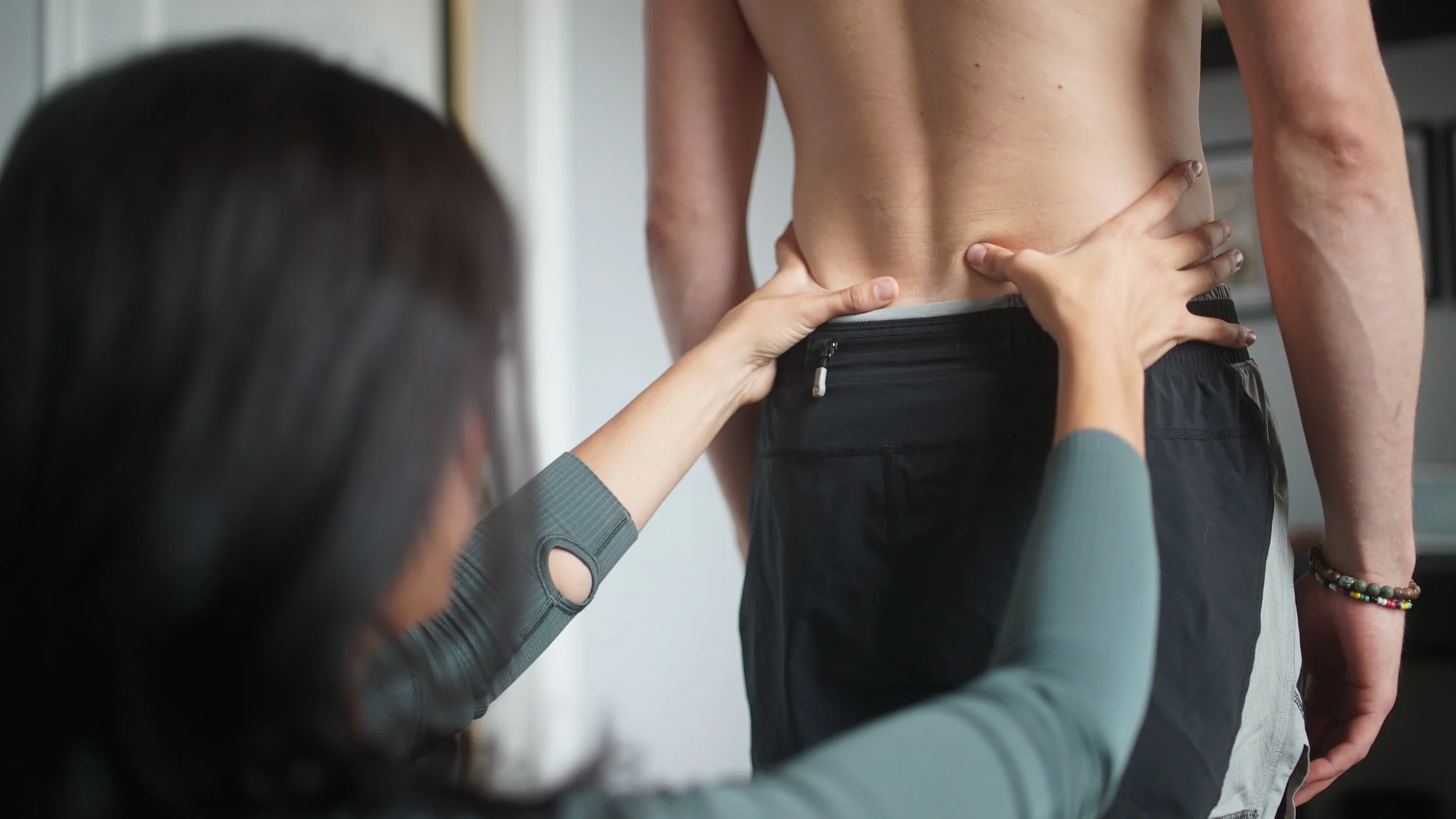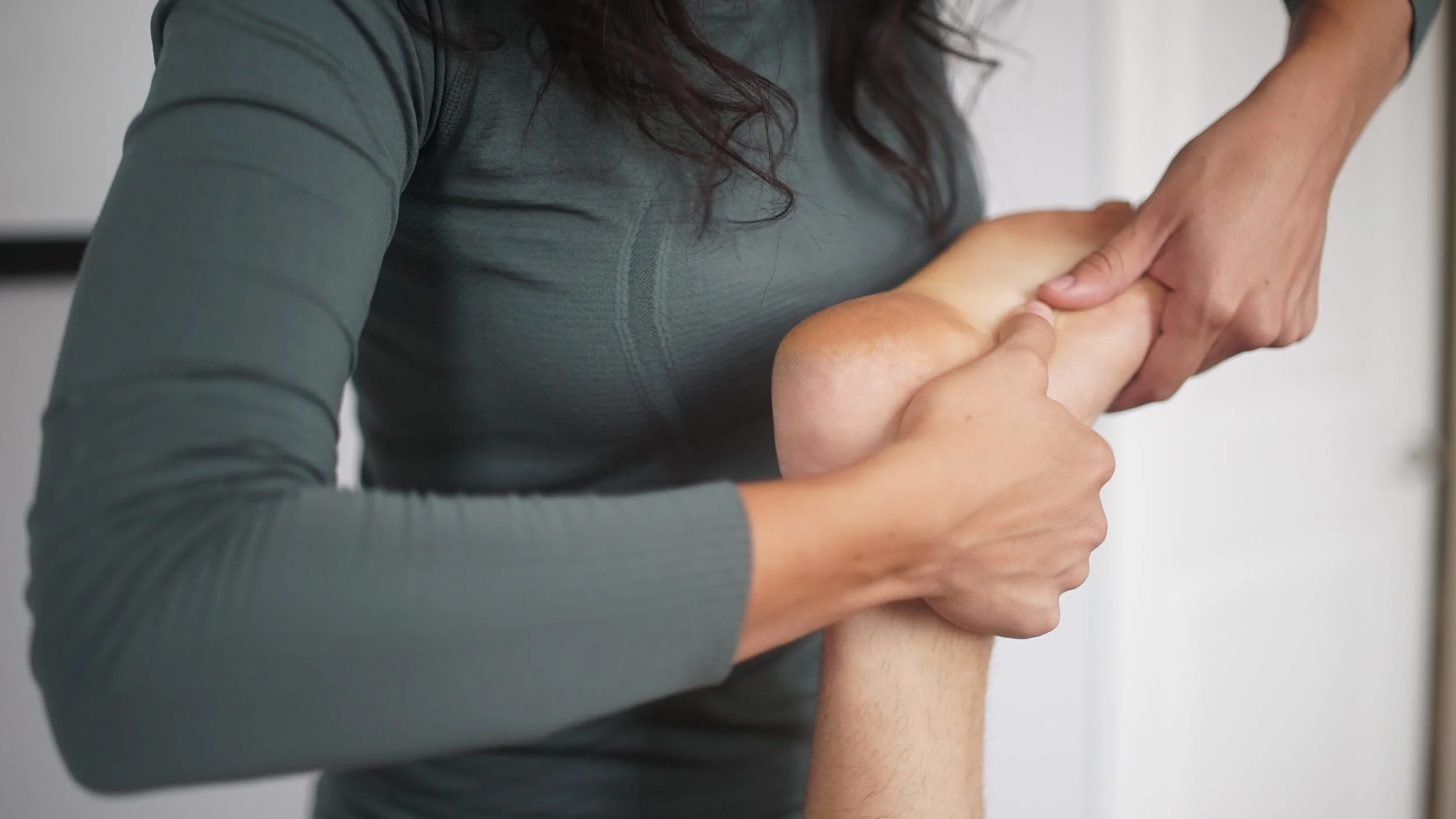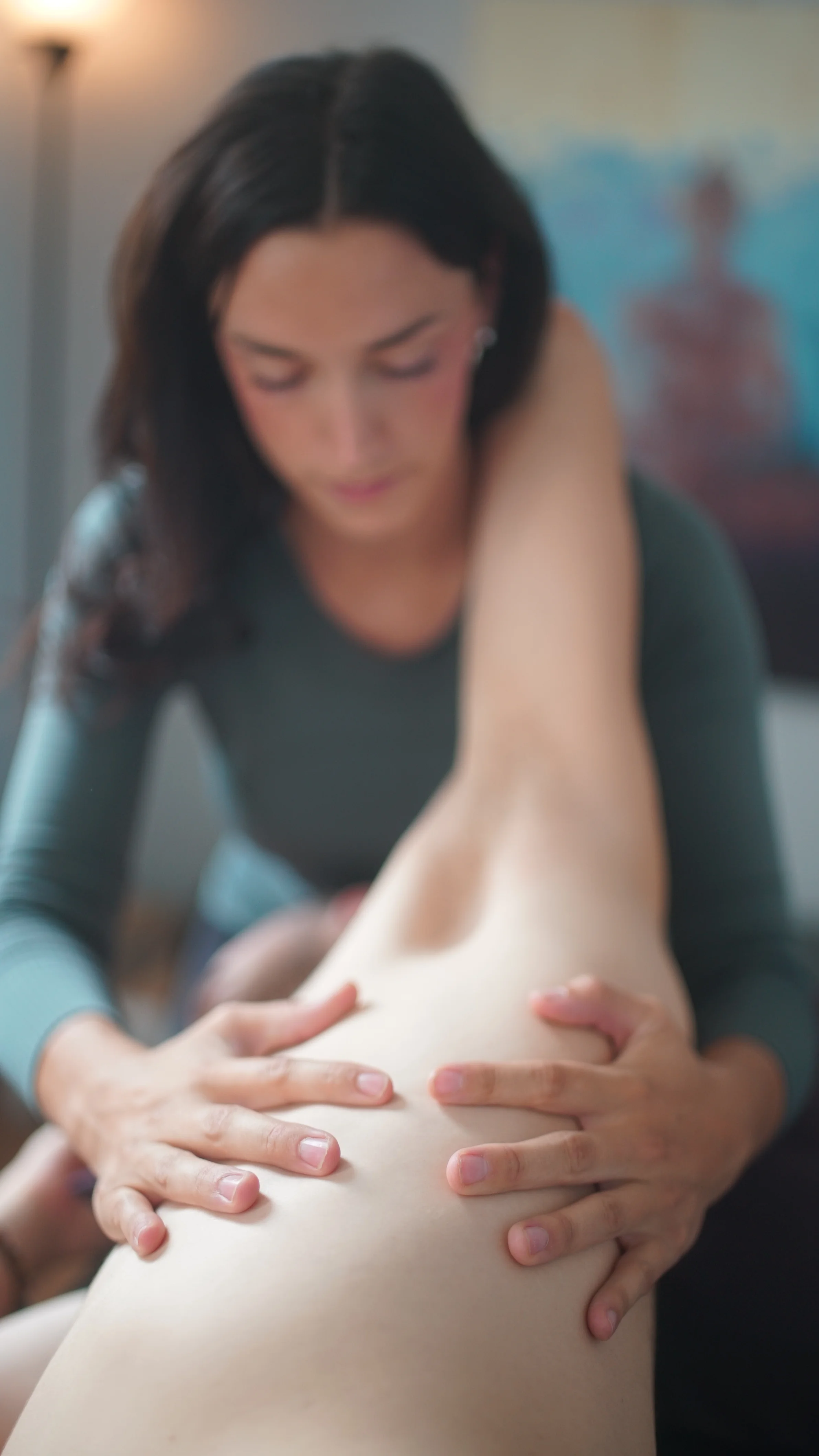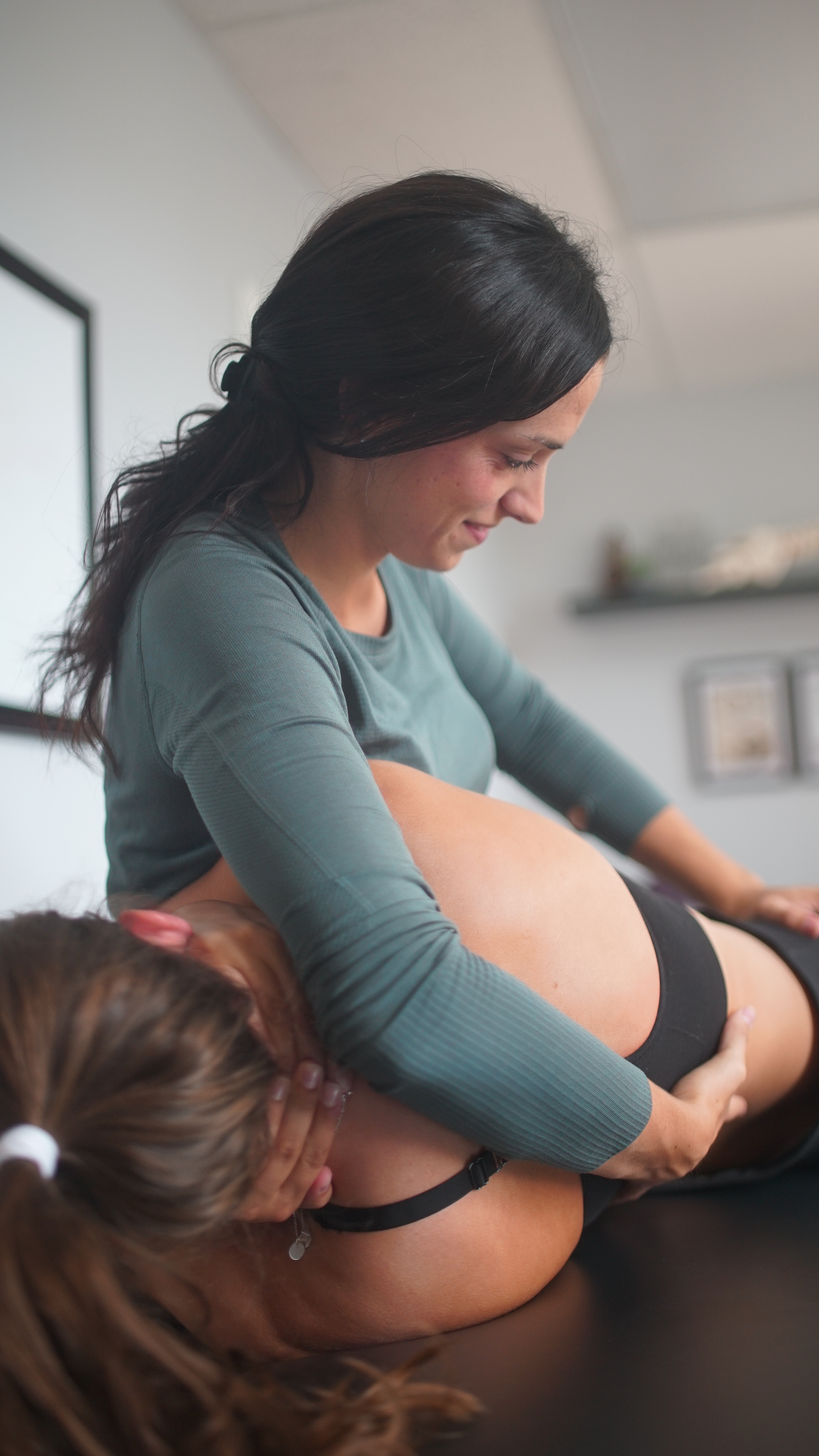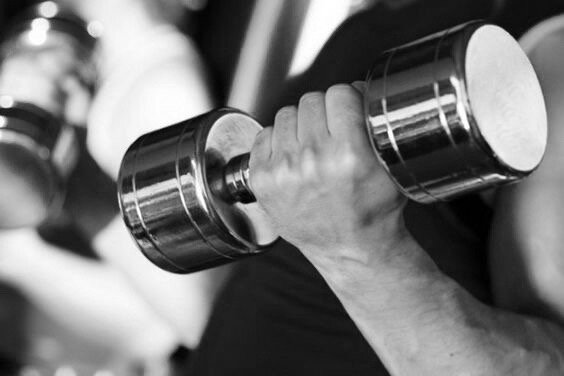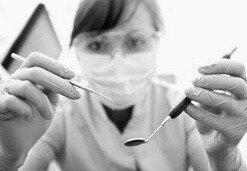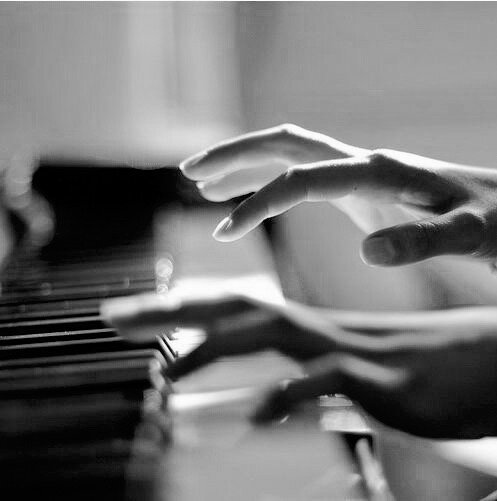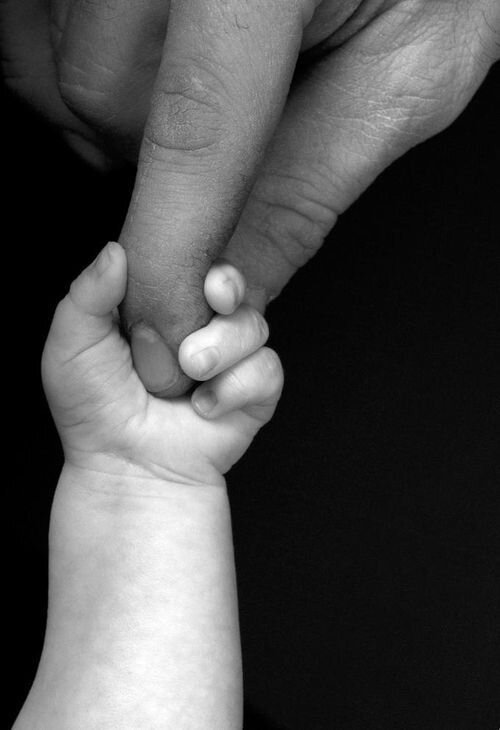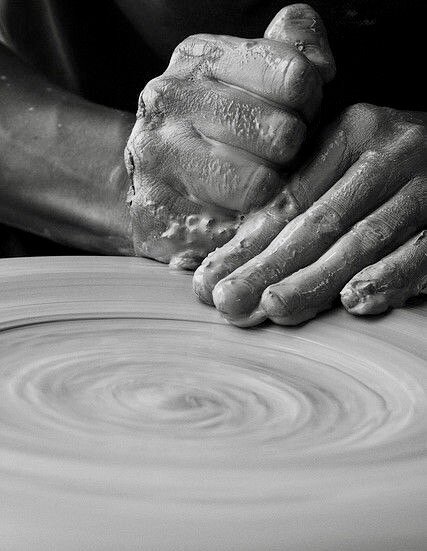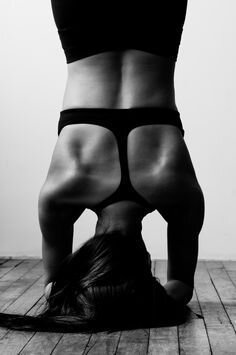Services
At Forest City Osteopathy, our therapists have extensive training in Osteopathic Manual Therapy, Massage Therapy, and Acupuncture. We have experience in treating people of all ages, and can tailor each treatment to your specific needs. All treatments can be covered under most extended healthcare plans. Find out which type of treatment best suits you.
Service Fees
$160 60 minute treatment
$140 45 minute treatent
$115 30 minute treatment
***PAEDIATRIC and infant rates Available
All prices listed include HST
Treatments may be reimbursed by many extended healthcare plans
*** Prices subject to Increase
What is Osteopathy?
The objective of an osteopathic treatment is to restore mobility to your body to improve your health and prevent illness or dysfunction. Osteopaths use a combination of very precise palpation, movements and stretching, deep tissue massage and manipulation of joints, to treat the restrictions, relieve pain and aid in recovery.
The well being of an individual relies on the way those bones, muscles, ligaments, connective tissue and internal structures work with each other. Any obstruction that impedes this process takes focus in treatments. Impediments may include trauma, illness, surgical scarring, repetitive activity, or the cumulative effects of mental, emotion, and physical stress. In most cases, the patient has had a combination of the above experiences over a long period of time.
For more information please visit; Osteopathy Canada
What is Massage?
Massage Therapy is a therapeutic intervention which consists primarily of hands-on manipulation of the tissues of the body, including muscular, nervous, visceral and circulatory systems. Treatments are aimed at optimizing the physical function of your body and preventing injury, while relieving physical dysfunction and pain. The negative effects of stress can be relieved or prevented through the use of Massage Therapy.
Treatment plans vary depending on the client's history, and assessment findings. The therapist's knowledge of anatomy, and skilled palpation help to target the primary issues and treatments are often a combination of soothing soft tissue manipulations, stretches, active movements, myofascial trigger point release, craniosacral therapy, articular mobilizations, vibrations, deep fascial work, visceral massage, intra-oral techniques, and many more.
What is Neurofunctional Acupuncture?
Acupuncture is a powerful therapeutic modality that has wide reaching analgesic effects both peripherally and centrally at the level of the spinal cord and brain. This means that by regulating circulation, and normalizing tensional relationships in the body, neurofunctional acupuncture can efficiently reduce perceived pain and improve functional movement capabilities.
An effective osteopathic treatment is that which not only achieves a re-alignment of tissues, but which also successfully integrates the correction with a patient’s various physiologic systems. Therefore, acupuncture can be used concurrently during osteopathic cranial-sacral treatment sessions to complement wellness responses and systemic balancing effects. In regards to structural tissue work, acupuncture can be used as effective and specific tool in assisting with tissue preparation prior to mobilization as well as further re-training following manipulation. By encouraging functional movement patterns through the activation of previous locomotor inhibitions, acupuncture can dramatically assist in stabilizing newly mobilized segments and hence aid in activity performance and injury prevention.
Overall, when used in combination with regular exercise or movement therapy, this treatment modality is viable treatment tool for the general health of individuals of all lifestyles.
Conditions We Treat
Sports Injuries
Sports activities are a regular way of life for many of us, and involve people across all ages. Although sport injuries are common, those who are fit, tend to recover more quickly and easily
Concussions
Concussions are unique to each individual and can impact concentration, mood, sleep, digestion, and arousal. Symptoms can also be silent and last for a prolonged period of time. Find out how to help heal and decrease symptoms of post concussion traumas
Neck and Back pain
Over 60% of North Americans struggle with problems related to the spine in their lives. Trouble with your back may cause symptoms throughout the rest of your body, affecting your work, leisure, sleep and daily activities
Digestive Problems
Digestive complaints from infancy to adulthood are common in our society. From spitting up, nausea, IBS, indigestion and reflux, improving the body structure can have a significant role in assisting in the resolution of digestive system stress
Mothers and Babies
Treatment offers a gentle way of helping the body adapt to the changes which are taking place during pregnancy. Babies are also never too young to be treated to help cope with the powerful process of birth. Often the best results are achieved before the age of five
As you Get older
Retirement can bring time for leisure, finding new interests, chasing grandchildren, or travel opportunities. The body however has changed. Find out how to keep active in your changing lifestyle
What to Expect
In your first appointment, the Osteopath gathers information about current and past health issues, which may include falls, illness, surgery, traumas, nutrition, lifestyle, etc. You will then move from standing, walking, seated, and you may be asked to perform some actions and movements to assess different parts of your body related to your symptoms. It is important to wear clothing that you can move comfortably in, and will allow the therapist to access your joints and tissues.
Next you will discuss some of the findings, and talk about the treatment options, some possible effects and recommendations. When indicated a referral to other healthcare practitioners may be made, or you may be sent for further imaging or diagnostic tests. If osteopathic treatment is indicated, treatment techniques may include gentle sustained positions, deep tissue massage, recoil and breathing techniques, joint manipulation, exercise, and cranial sacral normalization.
Treatments should not be painful, and although techniques may be directed to certain areas of the body, the effects are often felt throughout. After your treatment, you might feel relaxed and able to move more freely. Some people feel tired, and others feel more energized. Each treatment may be different, and is unique to the person. Some conditions may only require one appointment, while others may require a long-term management. Normally, the treatment plan is determined according to your progression, rather than the prescription of a set number of treatment sessions.
Why Choose Osteopathy?
Osteopathic treatments are efficient, which helps to minimize the number of visits required. Practitioners go through many years of training to develop highly refined palpation and to learn to assess and treat your body as a whole. No part of the body works in isolation, so the treatments may be directed at certain areas but the effect will be felt throughout the whole body. This is what makes osteopathy different than other modalities, the symptom may not indicate where the treatment is directed. People are often surprised with how quickly the pain or dysfunction leaves, because they have often tried many other types of treatments without success.
Who is it for?
Osteopathy is suitable for almost anyone and can contribute to the treatment and management of a wide range of conditions. From injury recovery, postural imbalances, minor sports injuries, and overall health improvements, patients of all ages find benefit to osteopathic treatments. It is used to remove restrictions in tissue, allowing the patient to become more mobile, and able to recover faster to maintain health.
The Goal of Treatment
Identify and remove the cause of pain or dysfunction
Reduces pain, numbness, stress, and stiffness in muscles and joints by increasing range of motion and mobility of tissues
Treats spinal dysfunction to ensure the neurological supply is efficient
Encourages the body to heal itself by Increasing circulation and regulation of pressures
Relieves tension headaches and migraine headaches
Reduces scars and adhesions
Treats trauma resulting from accidents (Sport injuries, Motor vehicle injuries)
As part of your healthcare team, osteopathy can help you with symptoms of other diagnosed conditions. Please consult your physician to find out if osteopathy is the right addition to your wellness plan.
Systemic Problems
Arthritis
neurological syndromes
digestive disorders
genitourinary problems
circulatory problems
Respiratory Illness
asthma
bronchitis and chronic colds
pleurisy and pneumonia
allergies
Pain
fractures and sprains
sciatica, nerve impingements
headaches and migraines
jaw pain and TMJ syndromes
pain after motor vehicle accidents
repetitive strain injury
Feminine Issues
Fertility difficulty
menstrual pain
hormonal fluctuations
thyroid and adrenal dysfunction
weight gain/loss
sleep disruption
Ear, Nose and Throat Problems
chronic ear infections
recurrent sore throats
frequent colds / sinusitis
glaucoma
tinnitus and ear aches
Pediatrics
colic, spitting up, gas, bloating
nursing and latching difficulty
birth trauma
ear infections
torticollis
FAQs
Do I need a referral to make an appointment?
You do not need a physician referral to make an appointment. You may want to discuss your treatment plan with your family doctor to ensure a multidisciplinary approach to your healthcare.
How do I make an appointment?
You can now book online using our Book Appointment button located at the top of this page. If you do not find an appointment time that works for you, please use the Contact Us Page to be put on a cancellation list, or to request a special time that might work well for you.
Are these services covered by my health plan?
Most extended health care plans now have partial or full coverage for Osteopathic Manual Practitioners and Massage Therapy. Some direct billing is available. Please contact your benefits provider to enquire about your coverage amount and if a prescription is required. These services are not covered by the Ontario Health Insurance Plan (OHIP), but services may be claimed as a medical expense for income tax purposes.
What are the Fees and how do I make a payment?
The current rate for individual assessment or treatment is $160 for a one hour session. The fee for infant, youth and senior treatments have an applied 10% discount. Payment is due at the end of each treatment session and may be made by Cash, Debit, Cheque, Visa or Mastercard. A receipt is provided once payment is received. If you have health care coverage, you can submit this receipt for reimbursement.
Where are you located?
Our office is located in South London at 60 Breckenridge Crescent, London, ON. Free parking is available on the street or in the driveway. Refer below for a map or click here for Google Directions.
Training and Regulation of Osteopathy in Ontario
Extended health care benefits cover treatments by practitioners that have been educated in a four or five year program, and are accepted into the Ontario Association of Osteopathic Manual Practitioners (OAO). For a complete list of regulated osteopathic practitioners and their institutions, you can find us here; www.osteopathyontario.org.
The profession of Osteopathy in Ontario is currently unregulated. There are many different associations that a practitioner may be educated under. Our practitioners were educated at the Canadian College of Osteopathy, an intensive five year program comprising of theory, clinical and practical work. Upon completion, students are required to complete a clinical thesis and defend before an international jury.
